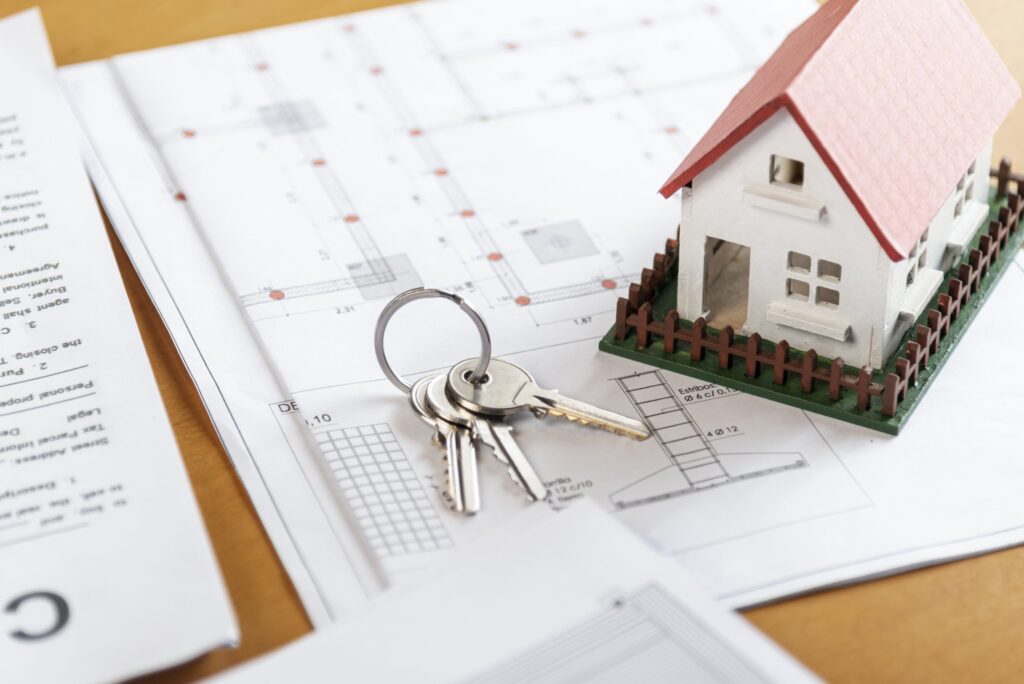In the world of real estate, due diligence plays a crucial role in protecting your investment. Whether you are buying or selling a property, conducting thorough due diligence can provide you with valuable insights and help you make informed decisions. This article will explore the concept of due diligence in conveyancing, the process involved, the risks of ignoring it, the key elements, and the role of professionals in this important stage of property transactions.
Understanding the Concept of Due Diligence
Before delving into the intricacies of due diligence in conveyancing Sydney, it is essential to grasp the core concept. Due diligence refers to the careful examination and investigation of a property before entering into a legal agreement. It is a comprehensive process that aims to uncover any potential risks or issues associated with the property and evaluate its true value.
Definition and Importance of Due Diligence
Due diligence can be defined as the process of conducting a thorough investigation into all relevant aspects of a property transaction. This includes analyzing legal, financial, and physical aspects of the property to ensure transparency and protect the rights and interests of the parties involved in the transaction.
Undertaking due diligence is of utmost importance in conveyancing as it helps identify any hidden liabilities, encumbrances, or defects that might affect the property’s value or impair its marketability. It also provides an opportunity for the buyer to assess whether the property meets their requirements and expectations. Learn more what to expect during the property transaction.
The Role of Due Diligence in Conveyancing
In the context of conveyancing, due diligence serves as a vital tool to mitigate risks and ensure a smooth transaction process. By conducting comprehensive due diligence, both buyers and sellers can have a clear understanding of the property’s condition, legal standing, and potential issues, thus facilitating fair and informed negotiations.
Detailed due diligence helps the buyer identify any potential legal or financial hurdles associated with the property. It also enables sellers to address any existing issues proactively, avoiding potential disputes or legal complications down the line.
Moreover, due diligence plays a crucial role in protecting the interests of all parties involved. For buyers, it provides a sense of security and confidence in their investment. By thoroughly examining the property’s documentation, such as title deeds, leases, and contracts, buyers can ensure that they are acquiring a property with a clean and marketable title.
Additionally, due diligence allows buyers to assess the property’s physical condition. This may involve conducting inspections to identify any structural defects, pest infestations, or environmental hazards that could impact the property’s value or pose potential risks in the future.
For sellers, due diligence offers an opportunity to rectify any issues that may arise during the process. By proactively addressing concerns and resolving any outstanding matters, sellers can enhance the marketability of their property and attract potential buyers with confidence.
Furthermore, due diligence can also uncover valuable information about the property’s financial aspects. This may include reviewing financial statements, tax records, and rental agreements to assess the property’s income-generating potential and evaluate its financial viability.
In conclusion, due diligence is an indispensable part of the conveyancing process. It provides a comprehensive understanding of the property, mitigates risks, and ensures transparency for all parties involved. By conducting thorough due diligence, buyers and sellers can make informed decisions and navigate the transaction process with confidence.
The Process of Due Diligence in Conveyancing
The due diligence process in conveyancing typically involves three stages: pre-contractual, contractual, and post-contractual.
Conducting due diligence in conveyancing is a crucial step in the property buying process, ensuring that buyers are well-informed and protected throughout the transaction. Each stage of due diligence plays a significant role in uncovering potential issues and mitigating risks.
Pre-contractual Stage
During the pre-contractual stage, the buyer’s solicitor or conveyancer conducts various investigations into the property. This includes reviewing the title deeds, property documentation, and relevant planning permissions. The buyer may also arrange for a property survey to assess its physical condition.
Additionally, in this stage, the buyer’s legal representative may investigate any potential legal restrictions or obligations associated with the property. This thorough examination helps the buyer make an informed decision before committing to the purchase.

Contractual Stage
Once the buyer is satisfied with the initial investigations, the contractual stage involves scrutinizing the draft contract, including its terms and conditions, warranties, and any special clauses. Legal professionals play a vital role in ensuring that the contract accurately reflects the agreed-upon terms and protects the buyer’s interests.
Moreover, during the contractual stage, negotiations between the buyer and seller may take place based on the findings of the due diligence process. This stage is crucial for resolving any discrepancies or issues that may arise before finalizing the contract.
Post-contractual Stage
After the contract is signed, the post-contractual stage involves finalizing the transactions’ legal and financial aspects. This includes conducting searches with relevant government authorities, verifying legal documentation, arranging for funds transfer, and coordinating completion dates.
Furthermore, in the post-contractual stage, the buyer’s legal team ensures that all necessary legal requirements are met, and the transfer of ownership is executed smoothly. This phase marks the culmination of the due diligence process, leading to the successful acquisition of the property.
Risks of Ignoring Due Diligence in Conveyancing
Ignoring due diligence in conveyancing can expose both buyers and sellers to significant risks. Failure to thoroughly investigate a property may lead to legal complications and financial burdens that outweigh the initial investment.
Conducting due diligence in conveyancing is a crucial step in the property transaction process that should never be overlooked. It involves a comprehensive investigation into the legal, financial, and physical aspects of a property to ensure that all parties involved are fully informed and protected.
Legal Complications
Without proper due diligence, buyers may end up purchasing a property with undisclosed legal issues, such as unresolved disputes, outstanding mortgages, or incomplete planning permissions. This can result in costly legal battles and potentially force the buyer to assume responsibility for resolving these issues.
Furthermore, overlooking due diligence can also leave sellers vulnerable to legal risks. Failing to disclose important information about the property’s history or condition can lead to lawsuits from disgruntled buyers seeking compensation for misrepresentation or non-disclosure.
Financial Risks
Another major risk of neglecting due diligence is the potential for financial loss. By not thoroughly assessing a property’s financial health, buyers may inherit unforeseen liabilities, such as outstanding tax obligations or hidden maintenance costs. These financial burdens can significantly impact the property’s value and the buyer’s long-term financial stability.
Moreover, sellers who skip due diligence run the risk of undervaluing their property or missing out on potential opportunities to maximize its value. By overlooking important financial considerations, sellers may end up selling their property for less than its true worth or overlooking key factors that could attract higher offers.

Key Elements of Due Diligence in Conveyancing
Successful due diligence in conveyancing incorporates several key elements to ensure a comprehensive assessment of the property. It is a crucial process that helps buyers make informed decisions and mitigate potential risks associated with property transactions.
Property Inspection
Conducting a thorough inspection of the property is essential to identify any physical defects or issues that may affect its value or pose safety risks. Engaging a qualified and experienced property surveyor can provide valuable insights into the property’s condition, including structural integrity, dampness, or other potential problems. Additionally, it is important to inspect not only the main structure but also any outbuildings, fences, and landscaping to get a complete picture of the property’s overall condition.
Legal Documentation Review
Reviewing the property’s legal documentation, such as title deeds, planning permissions, and any applicable warranties or covenants, is crucial to identify any legal risks or restrictions. Solicitors and conveyancers play a key role in assessing the property’s legal status and ensuring that it complies with all necessary legal requirements. It is also important to check for any pending legal issues, such as disputes over boundaries or easements, that could impact the property’s ownership or future development.
Financial Assessment
Performing a thorough financial assessment helps evaluate the property’s affordability and financial viability. This includes considering factors such as mortgage options, taxes, and ongoing maintenance costs. Buyers should carefully analyze their financial capabilities and evaluate whether the property aligns with their long-term financial plans. It is also advisable to factor in potential future expenses, such as renovations or upgrades, to avoid any financial strain after the purchase.
The Role of Professionals in Due Diligence
Due diligence is a complex process that often requires the involvement of various professionals to ensure its effectiveness. Let’s take a closer look at the key professionals who play a vital role in this process.
Conveyancing Solicitors and Their Role
Conveyancing solicitors specialize in property law and play a crucial role in guiding buyers and sellers through the due diligence process. Their expertise in legal matters related to property transactions is invaluable. These professionals conduct thorough legal investigations to identify any potential issues that may affect the property’s ownership or use. They review contracts, ensuring that all terms and conditions are fair and favorable to their clients. Additionally, conveyancing solicitors provide legal advice to clients, helping them navigate through complex legal jargon and ensuring that their interests are protected throughout the process.
Moreover, conveyancing solicitors facilitate a smooth transaction by liaising with other professionals involved in the due diligence process. They work closely with property surveyors, mortgage brokers, and other relevant parties to ensure that all aspects of the property are thoroughly examined and considered.
The Importance of Hiring a Property Surveyor
Property surveyors are experts in assessing a property’s physical condition and identifying any potential defects or risks. Engaging a qualified property surveyor can provide buyers with an unbiased inspection report, enabling them to make informed decisions based on the property’s actual condition.
These professionals conduct comprehensive inspections, examining the property’s structure, foundation, electrical systems, plumbing, and other crucial aspects. They identify any existing issues or potential risks that may require attention or further investigation. By hiring a property surveyor, buyers can gain a clear understanding of the property’s condition, allowing them to negotiate repairs or adjustments to the purchase price if necessary.
Furthermore, property surveyors also play a crucial role in ensuring compliance with local building codes and regulations. They assess whether the property meets the necessary standards and highlight any areas that require attention or improvement. This information is essential for buyers to make informed decisions and avoid unexpected expenses or legal complications in the future.
In conclusion, due diligence is of significant importance in conveyancing, as it safeguards your investment and minimizes potential risks. By thoroughly investigating a property’s legal, financial, and physical aspects and seeking professional advice, buyers and sellers can ensure a fair and transparent transaction process. Ignoring due diligence can result in legal complications and financial burdens that may outweigh the benefits of the investment. Therefore, it is crucial to prioritize due diligence to protect your investment and make informed decisions in the world of real estate.

